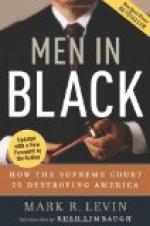The New York Legislature recently passed a law making the court a court of record, and making all the provisions of the Code of Civil Procedure applicable. The code with its half million words is therefore a part of the procedure. So that the client now before he goes into court without a lawyer ought to familiarize himself with the code. Formerly these courts may not have been dignified. Pandemonium would break loose and the litigants begin screaming at and abusing each other. Often the judge was obliged to apply a somewhat arbitrary and paternal rule. Now the courts are more dignified and formal, but the clients are disappearing from view. They are in fact afraid to come into court without a lawyer.
While the dignity and efficiency of the court have been increased, it has almost ceased to be a court for the poor man; indeed the procedure is so technical that, although possible, it is rather unusual for a man to come without a lawyer. Of course, the attorneys who make their living by appearing in small suits where the fee is often a contingent part of the small amount recovered, or a fixed charge of $5 or less for trying a case, do not present examples of the best legal ability.
The point of view of the client is that he is loath to spend the money to hire a lawyer for defense. One litigant stated in court, when asked if he had not admitted the debt: “Well,” he said, “I just went around to see the plaintiff to find out if I could not save a few dollars instead of hiring a lawyer.” It is an open question which brand is the best for the client, the rough and ready justice or the formal and orderly kind.
While the jury are being examined and during the opening of the counsel, the client sits quietly, but a trifle self-consciously, at the counsels’ table. The talk is about him and frequent references are made to him and what he has been doing. He tries to look as though he did not care and was accustomed to the surroundings, and when the taking of testimony and the wrangles over objections and motions begin, he falls quietly into the background.
If it is a criminal action he is not on the stand during the People’s case. When his side is presented his lawyer does the best he can to keep him from the stand, whether he be innocent or guilty. The well-known expression is that the defendant hangs himself by taking the stand. In civil trials the client may be a corporation or the owner of the injured automobile or wagon, but not a witness to the accident. He sits silent by his lawyer if he is wise, realizing that his lawyer can fight better without being annoyed. If he is nervous, he keeps plucking at his sleeve and whispering advice. It is difficult for him to restrain himself. There have been months of preparation. The drama is being produced; to him it is vital. He knows more about the case than the lawyer. He wants to advise, suggest, and instruct. Why doesn’t the lawyer ask the witness that question about what he told Smith or what he told his wife?




